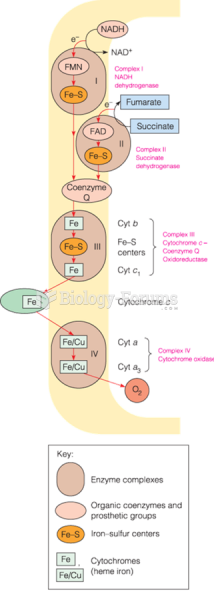|
|
|
It is difficult to obtain enough calcium without consuming milk or other dairy foods.
Approximately 70% of expectant mothers report experiencing some symptoms of morning sickness during the first trimester of pregnancy.
As many as 28% of hospitalized patients requiring mechanical ventilators to help them breathe (for more than 48 hours) will develop ventilator-associated pneumonia. Current therapy involves intravenous antibiotics, but new antibiotics that can be inhaled (and more directly treat the infection) are being developed.
Interferon was scarce and expensive until 1980, when the interferon gene was inserted into bacteria using recombinant DNA technology, allowing for mass cultivation and purification from bacterial cultures.
About 600,000 particles of skin are shed every hour by each human. If you live to age 70 years, you have shed 105 pounds of dead skin.
 The tone of the nurse-patient introduction sets the stage for the patient interview and patient care
The tone of the nurse-patient introduction sets the stage for the patient interview and patient care
 Acute exacerbations of asthma can require management in the emergency department. The child is place
Acute exacerbations of asthma can require management in the emergency department. The child is place





